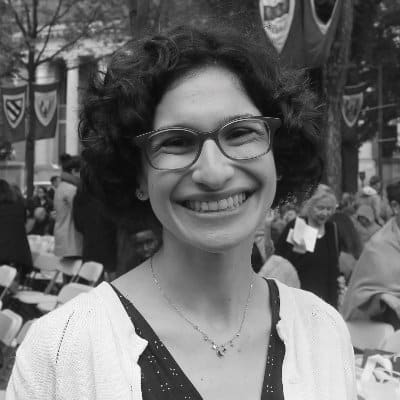 Photo by Getty Images
Photo by Getty Images At precisely 9:25 every morning, I go through a daily ritual. I open my Gmail and scan my inbox for a promising subject line. My eyes flit across the screen, then I click on my Spam folder, hoping to see an email that slipped by. But there’s nothing — only yet another email from Walmart. I frown, then I go through my daily job-search notifications. The whole ritual takes maybe five minutes, but I feel utterly exhausted by it each and every time.
When I had accepted a one-year job in July 2019, I knew I’d have to go through another job search faster than I could say, “401(k).” I had assumed, however, that with some experience under my belt, that search would be easier. The outbreak of the coronavirus quickly threw a wrench in those plans. More than 100 job applications later and my inbox is as empty as ever.
Much of this is my own doing. In first grade, my mother came to visit my school and was appalled to see that I was walking around the classroom. When she asked why I was not obediently sitting in my chair, my teacher responded, “She’s bored.” Seventeen years later, boredom still is my biggest enemy. If I am not intrigued and impassioned by the work I am doing, I get restless and dejected; you literally can hear the timbre of my voice drop. There are many people I know who are happy chugging along with any position. I’m not one of them.
But the dismal state of my job search is forcing me to wrestle with this policy I’ve crafted. I’m interested in a wide variety of topics but it would be foolish to admit I haven’t been restricting myself. I keep hearing about job freezes at the organizations I’ve applied to, but companies that I have no interest in working for are hiring bright young things by the dozen. The choice seems to be to continue on my current path and risk finding nothing, or expand my job search and have a greater chance of finding something to support myself.
Both options feel like a betrayal.
I am, of course, falling prey to a profoundly human problem: viewing things in black and white, such as good versus evil, them versus us. Some people are predisposed to such thinking but I believe our environment plays a role, too. And the pandemic has provided ample opportunity for such reductionist thinking. Across my Twitter feed and in my conversations with friends, I keep hearing variants of: People who don’t wear masks are evil; life will never go back to normal; you’re taking too much risk going out; you are overreacting by staying in — and so on.
When I had accepted a one-year job in July 2019, I knew I’d have to go through another job search faster than I could say, “401(k).”
When life becomes uncertain, this black-and-white thinking serves as a crutch, narrowing our field of vision so we can latch on to some degree to absolutism. This type of thinking sometimes can be helpful in, for example, following public safety guidelines. But when it comes to decisions such as applying to jobs, a black-and-white perspective can contract our horizons in ways that become harmful. By viewing my job search as a decision between interest versus stability, boredom versus passion, I overlooked the fact that there are positions that balance these two qualities, and there are ways to create stability out of your passions (just look at many of my friends who are freelance writers).
What is more concerning, though, is that by adopting this black-and-white thinking, I eliminated my ability to grow. Taking a position that may not cause me to jump for joy could make me better at engaging with topics that don’t interest me, a necessary life skill. And perhaps, with more exposure, I could discover an aspect of that topic that sparks a new passion.
It’s hard to step into that gray zone, but I make it a point to do so every day. So every morning, at 9:25, I begin a new routine. I open 10 job-search sites, set the filters to the widest settings, and I revel in a world of new possibilities and of new adventures to come. Stay tuned.
Ari Berman is assistant editor at Foreign Affairs.























 More news and opinions than at a Shabbat dinner, right in your inbox.
More news and opinions than at a Shabbat dinner, right in your inbox.